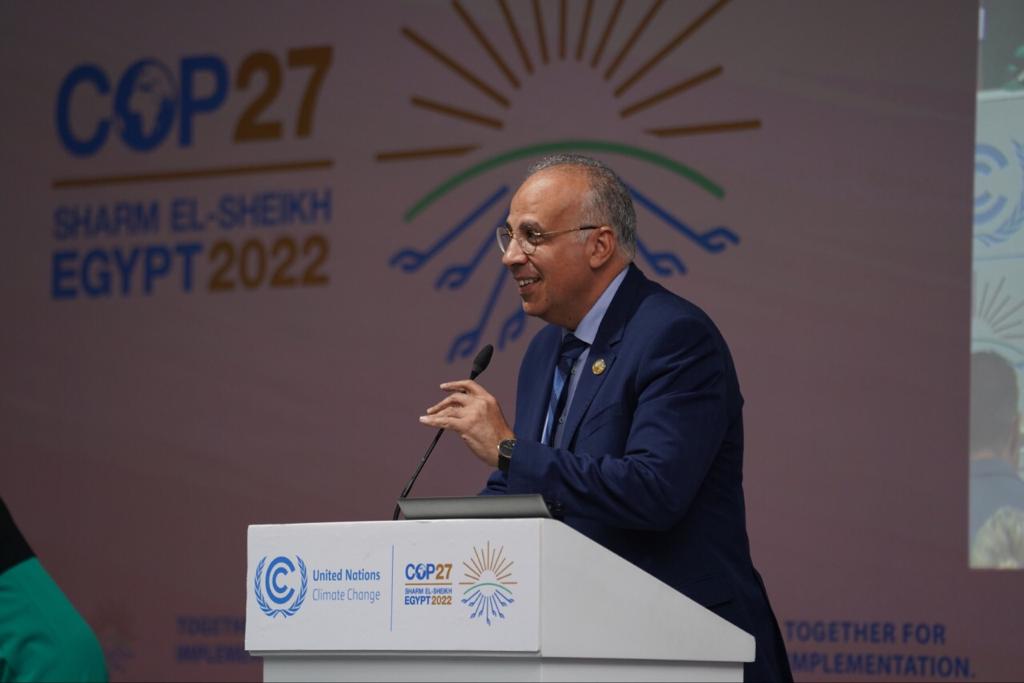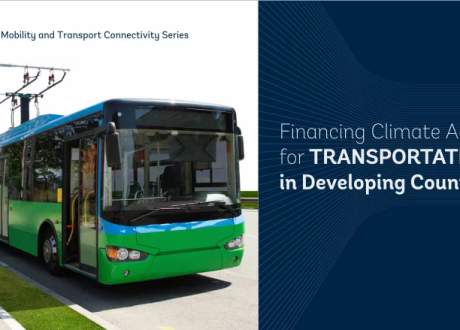
Egypt’s Abouleish among 100 Most Influential Africans 2024 in civil society
Egypt’s Helmy Abouleish, a prominent figure in the field of sustainable agriculture, particularly known for ...

Egypt’s COP27 climate conference Presidency, in partnership with the World Meteorological Organization (WMO), launched Action on Water Adaptation or Resilience (AWARe), an initiative that will champion inclusive cooperation to address water related challenges and solutions across climate change adaptation.
AWARe aims at contributing to a successful outcome at the 2023 UN Conference on Water and it brings together the Water and Climate Coalition, the Adaptation Action Coalition as well as the Marrakesh Partnership Climate Action Pathway Water towards scaling up adaptation action.
Speaking on the initiative, COP27 President Sameh Shoukry said “Increasing water demand from a growing population and variable supply does not make for sound economics. As we work to design and implement solutions across adaptation, water management must feature prominently in the discussions and actions. Water is life and is vital to sustaining lives and livelihoods. Through the AWARe initiative we are bringing together stakeholders to alleviate the challenges faced by the world’s vulnerable communities and ecosystems.”
In close cooperation with African Union (AU) and African Ministers’ Council on Water (AMCOW) among other stakeholders, the initiative aims at offering transitional adaptation solutions for planet and people.
AWARe will focus on three priorities for action; decrease water losses worldwide and improve water supply; propose and support implementing mutually agreed policy and methods for cooperative water-related adaptation action and its co-benefits; and promote cooperation and interlinkages between water and climate action in order to achieve Agenda 2030, in particular SDG 6.
AWARe was launched during the opening session of COP27’s Thematic Day for Water with addresses by Dr Hani Sewilam, Egypt Minister of Water Systems, and Irrigation; Ambassador Ayman Amin Tharwat, Deputy Director for the Department of Climate, Environment and Sustainable Development for the Egyptian Ministry of Foreign Affairs; and Dr. Elena Manaenkova, Deputy Secretary General of WMO.
Minister Hani Sewilam said “The Global Water Crisis is affecting billions of people worldwide. The AWARe initiative will catalyze inclusive cooperation to address water as a key to climate change adaptation and its co-benefits, as well as enhanced resilience.”
Dr. Elena Manaenkova, Deputy Secretary General of World Meteorological Institute also commented: “74% of all natural disasters are water related, we still need to do a lot more to help societies, we must have effective disaster management strategies that protect communities and limit climate-related hazards.”
The AWARe initiative promotes measures to decouple economic growth from freshwater use and degradation; develop national utilization plans, adaptation and mitigation strategies and protect and restore freshwater ecosystems; seek cooperative analysis of river basin scale adaptation and mitigation options and risk of mal-adaptation and support mutually agreed policy solutions to advance a ‘do no harm’ approach.
It seeks to support promotion of sustainable waste-water management, sanitation policies and strategies, and water-wise energy pathways besides working on improving early warning systems for extreme weather events. It will also work towards linking water resources policies with national climate action to reflect climate change long-term impacts on water resources and demand, and to support preparedness and adaptation measures.
The Pan-African Center for Water Climate Adaptation, hosted by Egypt, will ensure the principal delivery mechanism and will focus on main activities and actions including finance, technology and capacity building.
Egypt’s Helmy Abouleish, a prominent figure in the field of sustainable agriculture, particularly known for ...
A study – by the Potsdam Institute for Climate Impact Research (PIK) – suggests that ...
Investing in resilient transport in low- and middle-income countries (LMICs) requires $417 billion annually between ...


اترك تعليقا